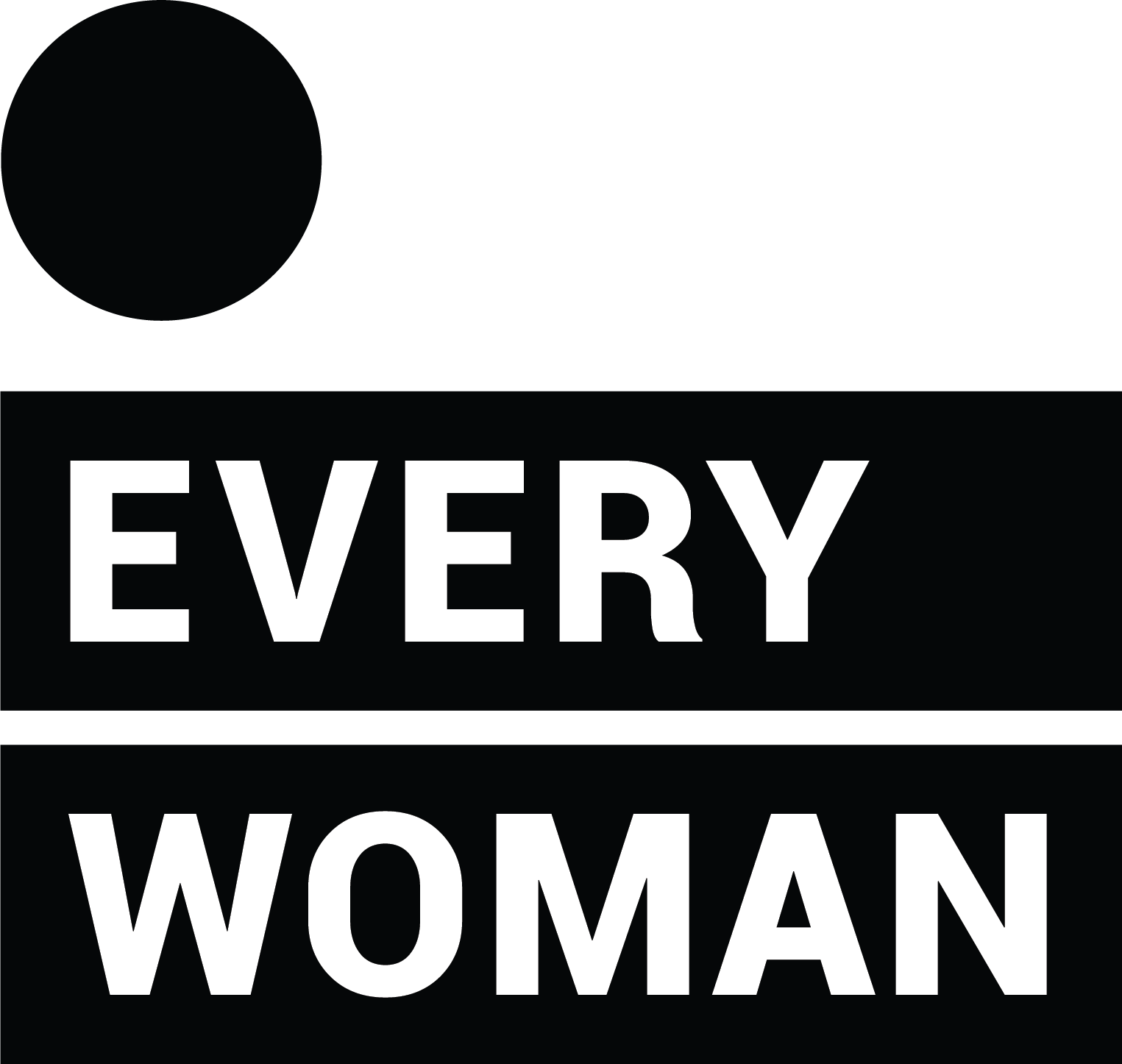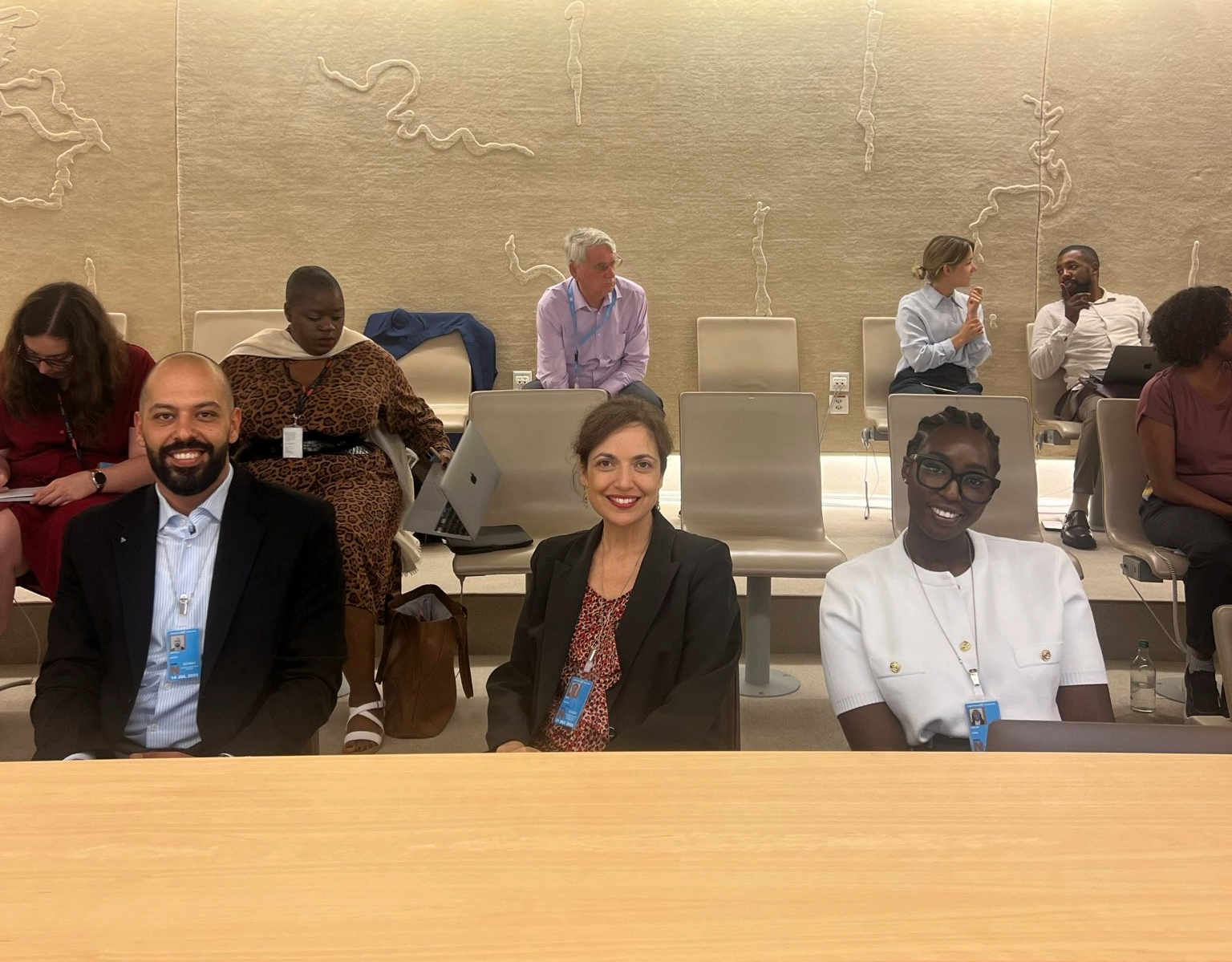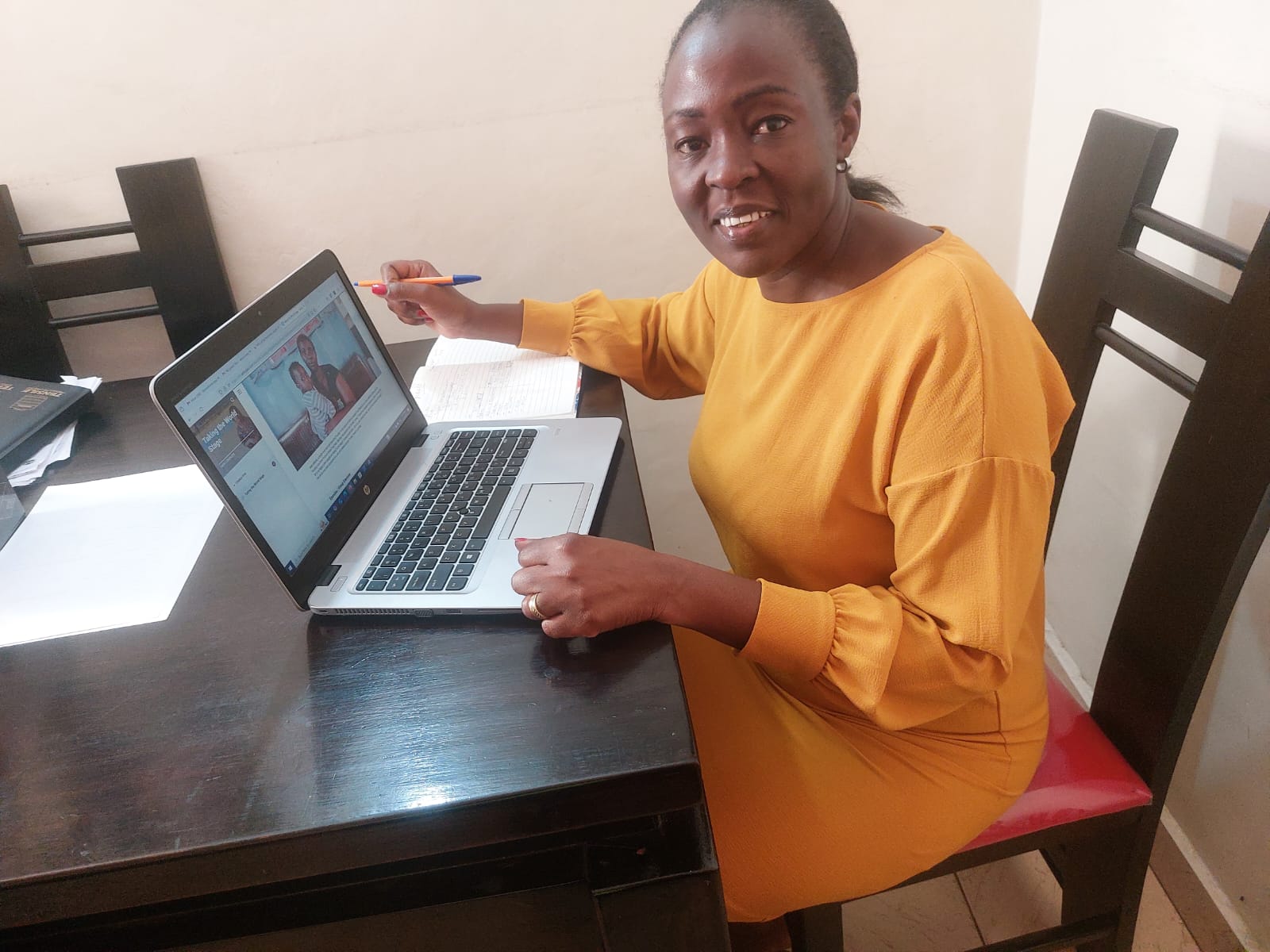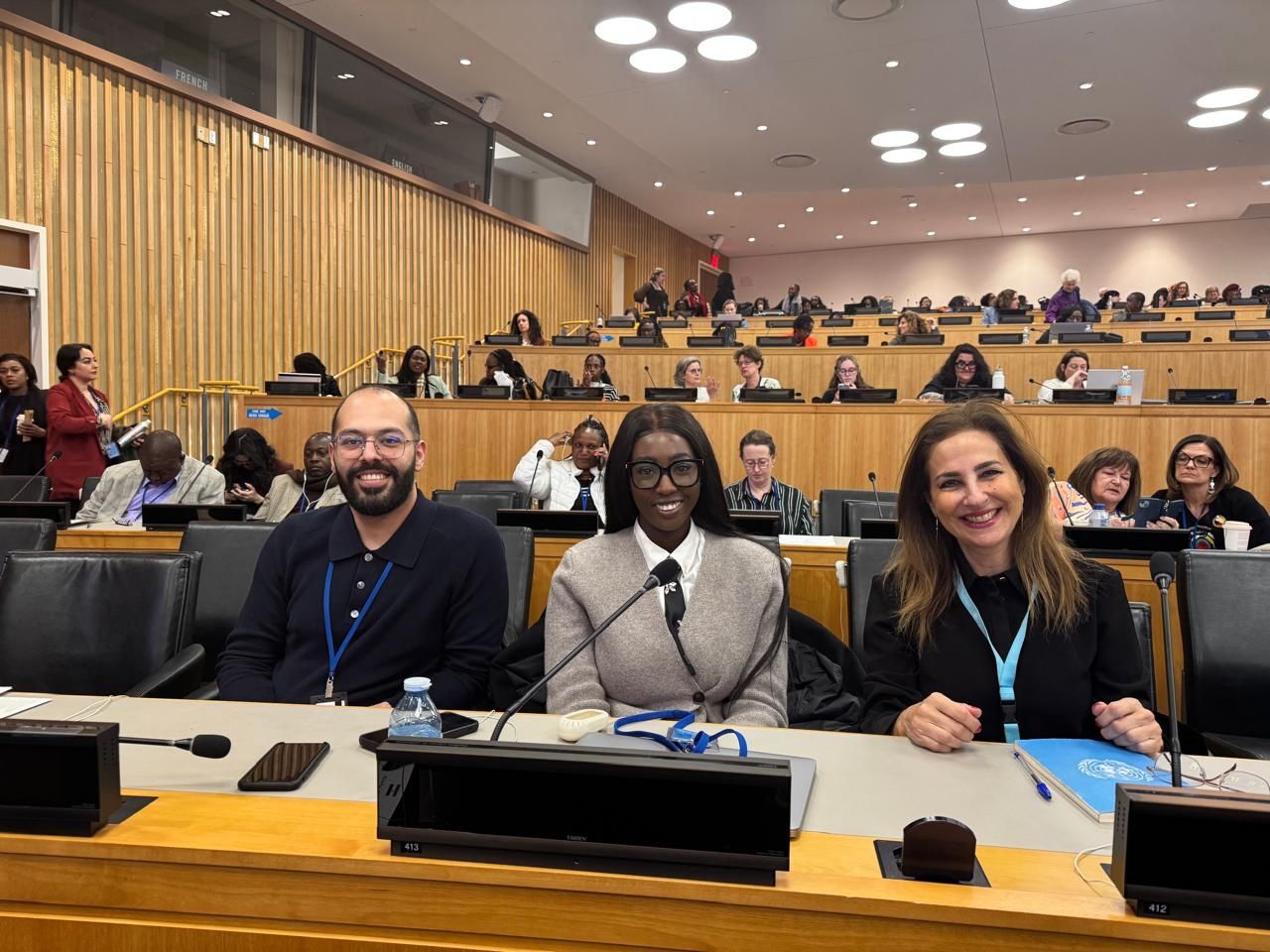#16 Days Essay Series
Every year, women’s rights activists across the globe participate in 16 Days of Activism against Gender-Based Violence from November 25, the International Day for the Elimination of Violence Against Women and Girls, to December 10, Human Rights Day. This year, members of Every Woman’s Emerging Leaders Council (activists under 35) are publishing six essays from six continents on how a new Optional Protocol to CEDAW can increase global accountability — part of this year’s theme — on ending violence against women and girls.
U.S. election campaigns, particularly of late, seemingly only serve to remind me of how vulnerable my womanhood makes me. Kamala Harris endured violence that ranged from derogatory gender-based comments to nonconsensual computer-generated compromising images, thanks to technological advancements and increased accessibility.
Years earlier, Hillary Clinton faced a constant flurry of digital abuse during her campaign, ranging from insults like “bitch” to false accusations of pedophilia, which culminated in a man bringing an AR-15 to a pizza restaurant in an attempt to murder Clinton.
While politicians like Harris and Clinton enjoy greater access to resources to cope with gender-based violence, the same cannot be said for other women in my country, the U.S., and around the world. Technology-facilitated gender-based violence (TFGBV) is a global issue that targets women and girls from all walks of life, notably affecting those in the public eye and from marginalized communities the most. It is among the most widespread forms of violence against women and its many forms are on the rise.
For example, the frequency of AI or deepfake porn is growing exponentially and intensifying gender-based violence. From 2019 to 2023, the presence of deepfake porn rose by 550% worldwide, with 99% of it targeting women. One in 10 women in the European Union report having experienced cyber-harassment since the age of 15. A study in the Arab States found that 60 percent of women and girls were victims of online violence. Other country data varies from 49 percent to 85 percent. Globally, UNICEF reports that one in five women — that’s 650 million — have experienced online or verbal abuse, rape, or sexual assault before the age of 18.
Just a few decades ago, it would have seemed unfathomable that women could be sexually harassed through their phones or killed for creating social media accounts. And yet, this is happening around the world, as nations grapple with a new digital landscape. From honor killings based on social media posts to spyware and harassment being used to silence women’s voices, I shudder to think of the fresh dangers the next generation of women may face through tomorrow’s technologies without immediate action.
We can change this
This is why the world urgently needs a new Optional Protocol to the Convention on the Elimination of All Forms of Discrimination against Women (CEDAW) dedicated to specifically addressing all forms of violence against women and girls, including online and technology-enabled violence.
The text of a new OP-CEDAW would be based on CEDAW General Recommendation 35 on violence against women and girls, which includes technology-based violence in its scope. Once created, signed, and ratified, nations would be obligated to include and address online violence in their national action plans, including updating legal codes, implementing protective measures, holding perpetrators accountable, and gathering data to better understand and address the problem.
A new OP-CEDAW would also mandate violence-prevention education programs, a key provision that would give women and girls the resources they need to stay safe online and create widespread awareness of the problem through national violence-prevention campaigns. Violence-prevention education programs at all levels — i.e., local schools, national advertising, and public service campaigns — would help tackle the root causes of violence against women and generate a societal shift that no longer tolerates any form of GBV.
The UN General-Secretary issued a report in October that recognizes the dangers that TFGBV poses and how the “manosphere,” or the existence of “decentralized cross-platform collection[s] of online communities…united by an opposition to feminism,” are perpetrating the problem. With new, proactive standards for collective digital education, an OP-CEDAW would be instrumental in making the Internet a safer place for all.
The global instrument of an OP-CEDAW on violence against women and girls would also work to close legal gaps in regional instruments on digital violence. Instead of varied approaches to addressing gendered digital violence, a new OP-CEDAW would provide clear definitions and improve the quality and consistency of laws globally, as well as open pathways for cooperation on addressing gender-based violence in real life and online.
Moreover, international treaties help hold states accountable for protecting human rights. They have the power to disseminate global norms, even within countries that haven’t signed them. For example, the U.S. rarely ratifies international treaties, but that hasn’t stopped Cities for CEDAW, which works to implement the CEDAW Convention in U.S. cities, towns, counties, and states.
Without stronger protections and global cooperation, women and girls around the world will continue to suffer the impacts of gendered digital violence. I believe an Optional Protocol to CEDAW would be monumental in turning the tide. Come 2028, I hope to see an election and world without it entirely. This is possible—it will just take all of us, together. Everyone, from individuals, activists, organizations, and states, must take action for a new Optional Protocol to CEDAW to end gender-based violence.
If you haven’t joined the call yet, do it now. Women and girls need you.
 DANIELLA ANGULO (USA) is a proud intersectional Latina feminist and human rights advocate who has previously advocated for and conducted research on women’s rights at the domestic and international level. Her work has spanned gender issues in the U.S. criminal justice system, women in conflict, and the creation of a feminist sustainable peace, as well as researching legal instruments protecting against gender-based violence around the world with Every Woman . She is currently obtaining her Master’s in Human Rights Policy and Practice through Erasmus Mundus’ joint degree program, where she will study across four different European universities. As a co-chair of the Emerging Leaders Council, she prioritizes transparency and member integration. She is excited to advance Every Woman’s work and build a more just and inclusive tomorrow.
DANIELLA ANGULO (USA) is a proud intersectional Latina feminist and human rights advocate who has previously advocated for and conducted research on women’s rights at the domestic and international level. Her work has spanned gender issues in the U.S. criminal justice system, women in conflict, and the creation of a feminist sustainable peace, as well as researching legal instruments protecting against gender-based violence around the world with Every Woman . She is currently obtaining her Master’s in Human Rights Policy and Practice through Erasmus Mundus’ joint degree program, where she will study across four different European universities. As a co-chair of the Emerging Leaders Council, she prioritizes transparency and member integration. She is excited to advance Every Woman’s work and build a more just and inclusive tomorrow.
SOURCES
Samantha Cole. “Deepfake Porn Is Out of Control. I Spoke to the Victims.” Wired. December 11, 2022. https://www.wired.com/story/deepfake-porn-is-out-of-control/
Martin Pengelly, “Hillary Clinton Faced ‘Constant’ Sexism in 2016 Campaign, Says Ex-Aide.” The Guardian. June 3, 2022. https://www.theguardian.com/us-news/2022/jun/03/hillary-clinton-faced-constant-sexism-in-2016-campaign-says-ex-aide
J.K. Trotter, “Anatomy of a Fake News Scandal.” Rolling Stone. December 28, 2017. https://www.rollingstone.com/feature/anatomy-of-a-fake-news-scandal-125877/
Clare Duffy. “The Internet Is Full of Deepfakes, and Most of Them Are Porn.” PCMag. August 15, 2023. https://uk.pcmag.com/the-why-axis-serie/149211/the-internet-is-full-of-deepfakes-and-most-of-them-are-porn
UN Women, “Facts and figures: Ending violence against women and girls,” accessed 6 Sept 2024, https://www.unwomen.org/en/what-we-do/ending-violence-against-women/facts-and-figures
VOA News. “One in 8 Girls and Women Raped or Sexually Assaulted Before Age 18, UNICEF Says.” VOA News. October 10, 2023,. https://www.voanews.com/a/one-in-8-girls-and-women-raped-or-sexually-assaulted-before-age-18-unicef-says/7817193.html
Cathrin Shaer, “Murdered because of Snapchat,” DW Global Media Forum, 29 January 2021, https://www.dw.com/en/social-media-uptick-in-honor-crime-in-middle-east/a-56370773
Mariyam Suleman Anees, “‘Honor Killings’ Continue Unabated in Pakistan,” The Diplomat, 28 July 2022, https://thediplomat.com/2022/07/honor-killings-continue-unabated-in-pakistan/
Amnesty International, ” Thailand: State-backed digital violence used to silence woman and LGBTI activists,” 16 May 2024, https://www.amnesty.org/en/latest/news/2024/05/thailand-state-backed-digital-violence-silence-women-lgbti-activists/
UN, CEDAW, General Recommendation 35, Article II, para 20, CEDAW C/GC/35, 26 July 2017, https://documents.un.org/doc/undoc/gen/n17/231/54/pdf/n1723154.pdf
UN General Assembly, “Intensification of efforts to eliminate all forms of violence against women and girls: technology-facilitated violence against women and girls, Report of the Secretary-General,” 8 Oct 2024, https://www.unwomen.org/sites/default/files/2024-10/a-79-500-sg-report-ending-violence-against-women-and-girls-2024-en.pdf
Human Rights Watch, “United States Ratification of International Human Rights Treaties.” Human Rights Watch. July 24, 2009,. https://www.hrw.org/news/2009/07/24/united-states-ratification-international-human-rights-treatiesCities for CEDAW, “CEDAW Cities,” Cities for CEDAW, Accessed September 29, 2024. https://citiesforcedaw.org/cedaw-cities/




